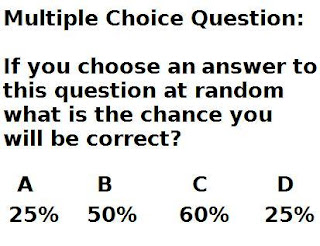So since the release of my book Relearning to Teach back in October/November last year, things have moved on pretty quickly. I've been overwhelmed by the response to its launch and am very proud of how the book is supporting teachers across the country. If you've not read it, and wonder what it's about, here's a very brief and quick summary:
In essence, its a reflection on the art of teaching. For years I had ploughed through lesson after lesson day after day. Six years in I realised I needed to improve because what my reputation was saying, wasn't reflected in the grades of my students. So I broke down teaching into key principles such as planning, questioning, differentiation and memory. I then spent the next 7 years reading research, implementing it into my classroom, and speaking to like minded teachers began, with it being transferred into my book. I begin each chapter with a question I myself dwelled over, such as:
• Is lesson planning just a box ticking exercise?
• Why do students remember in lessons, but forget in tests?
• Is asking more questions beneficial?
• Is feedback actually worth it?
Essentially, the book is a mix of research, practical ideas, and teacher thoughts (thanks to everyone who contributed to the book). It is what I wish I had been told when I began teaching so I didn't squander hundreds, if not thousands, of lessons teaching in an ineffective way.
So what are people saying about it?
Schools Week
In February, Schools Week reviewed my book and gave it 4 stars. The headline quote "I wasn’t convinced that this one was going to provide anything that hasn’t been said before. I was wrong." was fantastic. Other quotes from the review included:
"I was immediately struck by the honesty and integrity with which the book is written. By chapter 2, any scepticism I had previously held melted away and Fawcett had won me over (and not just because of the references to football)."
"The author begins many of his chapters by explaining where he has made mistakes in his teaching and how he has been “seductively wooed by a plethora of ideas that have no benefit”. This, coupled with his easily accessible style and the use of rhetorical questions as sub-headings, made me feel invited into a conversation with Fawcett to reflect together upon and mull over our respective teaching experiences. In essence, this is what good CPD should be all about."
"Throughout the book, Fawcett tackles myths head on and offers a very balanced and pragmatic view of teaching today. A number of recent conversations have convinced me that there is a general feeling that teacher voice and feedback on the efficacy of certain approaches is all too readily dismissed as anecdote. So it is particularly refreshing that, amongst the references to research (of which there are many), Relearning to teach is interspersed with views from current practising teachers sharing their thoughts and experiences from the coalface. This authenticity is sorely missing from much that the Edubook genre has to offer."
If you want to read the rest of the amazing review, please follow the link here: https://schoolsweek.co.uk/relearning-to-teach-understanding-the-principles-of-great-teaching/
Becoming Educated
February also saw me being interviewed by Darren Leslie for the Becoming Educated Podcast. In this episode, Darren asks me about the origins of the book, the various chapters within it, and what we can do to help develop teaching and learning. So far the response has been positive:
You can listen to/download the Podcast on the following platforms here:"Really enjoyed this by @dnleslie this evening driving home. Fantastic discourse with @davidfawcett27 around professional development. David’s humility is inspirational"
Spotify https://open.spotify.com/episode/5mOjuZ3QUvNkI4ewHrIeBm
Apple Podcasts https://podcasts.apple.com/gb/podcast/relearning-to-teach-with-david-fawcett/id1493757771?i=1000466492664
ICT Evangelist
Mark Anderson, better known as the ICT Evangelist, created 'The Periodic Table Of Educational Books To Read Today 2020', showcasing 82 books that Mark has read and found to be of value to education and teaching. I am very proud to be on this list under 'Teaching and Learning'. A copy of the table can be found on the link below:
https://ictevangelist.com/the-periodic-table-of-educational-books-to-read-today-2020/
Amazon
The book is available to buy on Amazon via the following link:
https://www.amazon.co.uk/dp/1138213861/ref=cm_sw_r_cp_api_i_Xl2yEbC3M1WAK
You can also buy it direct from Routledge here:
https://www.routledge.com/Relearning-to-Teach-Understanding-the-Principles-of-Great-Teaching-1st/Fawcett/p/book/9781138213869
I hope you get a copy and leave a review, either on Amazon, or in the comments below.
Enjoy
David









